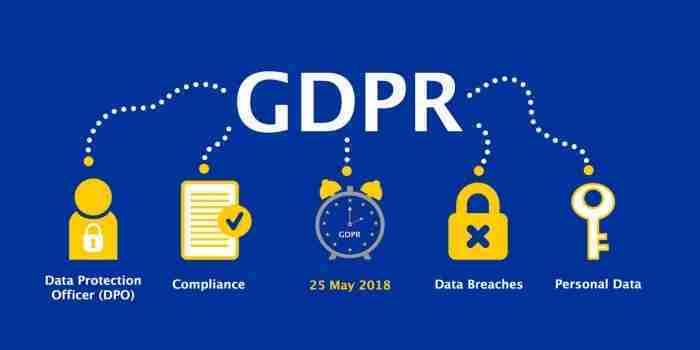
The European Union General Data Protection Regulation (GDPR) is a set of rules about how companies should process the personal data of data subjects. GDPR requirements PDF lays out responsibilities for organisations to ensure the privacy and protection of personal data, provides data subjects with certain rights, and assigns powers to regulators to ask for demonstrations of accountability or even impose fines in cases where an organisation is not complying with GDPR requirements PDF. Understanding GDPR requirements PDF can sometimes be a daunting task, so understand the key requirements through this easy-to-follow GDPR requirements PDF summary.
The companies that process personal data are asked to process the personal data in a lawful, fair and transparent manner. Now, what does this mean? Let us understand this:
The companies are expected to limit the processing, collect only that data which is necessary, and not keep personal data once the processing purpose is completed. This would effectively bring the following requirements:
The data subjects have been assigned the right to ask the company what information it has about them, and what the company does with this information. In addition, a data subject has the right to ask for correction, object to processing, lodge a complaint, or even ask for the deletion or transfer of his or her personal data.
As and when the company has the intent to process personal data beyond the legitimate purpose for which that data was collected, a clear and explicit consent must be asked from the data subject. Once collected, this consent must be documented, and the data subject is allowed to withdraw his consent at any moment.
Also, for the processing of children’s data, GDPR requirements PDF explicit consent of the parents (or guardian) if the child’s age is under 16.
The organisations must maintain a Personal Data Breach Register and, based on severity, the regulator and data subject should be informed within 72 hours of identifying the breach.
Also read: Free 8 Steps Checklist for Companies to Prevent Data Breach
Companies should incorporate organisational and technical mechanisms to protect personal data in the design of new systems and processes; that is, privacy and protection aspects should be ensured by default.
To estimate the impact of changes or new actions, a Data Protection Impact Assessment should be conducted when initiating a new project, change, or product. The Data Protection Impact Assessment is a procedure that needs to be carried out when a significant change is introduced in the processing of personal data. This change could be a new process, or a change to an existing process that alters the way personal data is being processed.
The controller of personal data has the accountability to ensure that personal data is protected and GDPR requirements PDF respected, even if processing is being done by a third party. This means controllers have the obligation to ensure the protection and privacy of personal data when that data is being transferred outside the company, to a third party and / or other entity within the same company.
When there is significant processing of personal data in an organisation, the organisation should assign a Data Protection Officer. When assigned, the Data Protection Officer would have the responsibility of advising the company about compliance with EU GDPR requirements.
Organizations must create awareness among employees about key GDPR requirements PDF, and conduct regular training to ensure that employees remain aware of their responsibilities with regard to the protection of personal data and identification of personal data breaches as soon as possible.
To conclude, there are a significant number of requirements that relate to EU GDPR. It is important to understand these requirements, and their implications for your company, and implement them within the context of your company. Such implementation would require a dedicated effort, like that of running a project.
Importance of Efficient Access Controls that every Organisation in Singapore should take note of. Enhancing…
Prioritizing Security Measures When Launching a Webpage That Every Organisation in Singapore should take note…
Importance of Regularly Changing Passwords for Enhance Online Security that every Organisation in Singapore should…
Comprehensive Approach to Data Protection and Operational Integrity that every Organsiation in Singapore should know…
Here's the importance of Pre-Launch Testing in IT Systems Implementation for Organisations in Singapore. The…
Understanding Liability in IT Vendor Relationships that every Organisation in Singapore should look at. Understanding…
This website uses cookies.